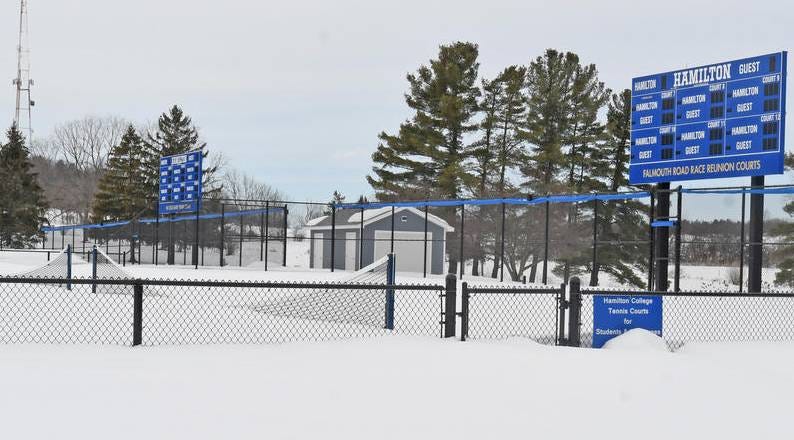
Negotiations are still ongoing between the Service Employees International Union Local 200 (SEIU) and the Hamilton College administration.
Custodial, grounds, and other skilled workers that are represented by the SEIU have been working without a contract since early July. Many union members have expressed frustration over the longevity and inefficiency of the negotiations. In
The Spectator
’s coverage of the union negotiations in the Nov. 1 issue, union leadership was dissatisfied that the College did not address the their non-economic demands and simply offered a percentage salary raise for the next three years.
The union has concerns over labor communications, retroactive pay, and subcontracting policies. They hope to have these concerns addressed in the new contract. “It’s not about the money, it’s about principle,” said Doug McClure, a Union Representative. “Morale is really low, people want to be respected.”
As recent negotiations have stalled and frustration has grown, the College claims it has tried keep momentum going forward by recommending the use of a federal mediator, Edward Garrow. “It gets to a point, like we have engaged this year, as we did three years ago, where the help of a federal mediator helps move the discussion along,” said Steve Stemkoski, Director of Human Resources.
The administration says it has been trying to reach a compromise. “We tried to move [negotiations] forward by taking all of our requests off the table and going straight to the money,” says Karen Leach, Vice President of Administration and Finance. “Some people have told us that is the most important thing to them.” The school also offered the union parity, which means if other staff members get a higher percentage raise, the union will receive the same raise instead of the agreed upon rate in the contract.
The College thought the union would want to talk about economic items, including retroactive pay, which would have to be bargained for in the contract. “When we presented our economic proposals and cleared the decks, their response was basically to go back to their June proposal with a couple minor modifications and put everything back on the table,” said Roger Wakeman, Associate Vice President for Facilities and Planning.
A major point of contention — communications — has been brought up multiple times throughout negotiations. The union believes that the contract should include more provisions requiring the
College to at least consult them before taking major actions in the department. Administration members believe that there are already avenues in the existing contract for employees to express their concerns. “Our thought was that their one avenue is to renew agreement and focus on the economics,” said Wakeman.
The regularly-held “Labor Relations Management” (LRM) meetings are the main channel for employees to voice their concerns to supervisors. “There have been some real successes, some of which have even continued through the negotiations on some topics where we created sub-working groups to evaluate some issues,” Wakeman added.
Precedent holds that the regular LRM meetings stop during contract negotiations. The administration says it has tried to find other channels to make sure their employees are heard.
“We’ve encouraged all members of our leadership team to be discussing issues all the time,” said Wakeman. “Last week, I might with the Chair and Vice-Chair of the union individually to just keep the communication flowing even outside of the formal LMR meeting.”
Though the administration claims to be looking for ways to increase communications between them and SEIU members, union members say it has not alleviated the concerns over subcontracting.
The College claims there is regular communication between the shop and functional area managers over what work needs to be done and what workers can handle, a common issue brought up by union members. “We are developing the operating budget for next year and we have to say what can we do in house and what do we have to contact out in certain maintenance areas and specialties,” said Wakeman. “The intent is never to take work away from the group, it’s really to perform our mission and to do it as effectively as we can.”
Subcontracting is done when the College does not have the in-house capabilities to complete certain tasks, such as instances when the administration identifies an assignment that would take time beyond what is reasonable for overtime hours.
The next round of formal discussions will occur on Nov. 26. “We recognize that there is a lot of concern around the contracts. I want to validate how important the team is to us and […] that they are key employees,” says Wakeman. “We’re not looking at this as a fight or a contest […] it’s a relationship not a fight. That’s the message that out of anything I was hoping our people would hear. I got feedback from some people saying they did hear that and some may have chose not to hear that.”

















